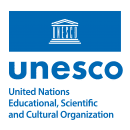Researcher in culture and creative industries
OVERVIEW OF THE FUNCTIONS OF THE POST
For the past years, culture has been perceived as a productive sector that plays an important role in national economies, in addition to its important role in sustaining and enhancing individuals’ and communities’ quality of life and wellbeing. Cultural activities and industries are becoming drivers for growth, enabling the diversification of national economies, generating income and creating employment in developing and emerging economies.
Cultural practices, assets and expressions are also key vehicles for the creation, transmission and reinterpretation of values, capacities and convictions through which individuals and communities express the meanings they give to their lives and their own development. Those values shape the nature and quality of social relationships, have a direct impact on the sense of individual and collective integration, empowerment, trust, tolerance of diversity and cooperation.
The UNESCO Convention on the Protection and Promotion of the Diversity of Cultural Expressions (2005) recognizes the sovereign right of States to formulate and implement policies and measures that support the emergence of dynamic cultural and creative sectors. It ensures that policies and measures are designed and implemented through informed, participatory and transparent processes, and guided by principles that respect human rights and fundamental freedoms.
To achieve this, State Parties to the above-mentioned convention, including Palestine that ratified it in 2011, are committed to collect and share, through quadrennial periodic reporting, statistics, information and data, and good practices on policies and measures that protect and promote the diversity of cultural expressions.
However, the pervious quadrennial report on the implementation of the Convention and preliminary survey showed that there is no comprehensive mapping of cultural sector that measures its impact on the different aspects of the Palestinian context, to elaborate informed and evidence-based cultural policies in Palestine.
JOB SUMMARY, REQUIRED AND DESIRED QUALIFICATIONS
JOB SUMMARY
UNESCO Ramallah Office will conduct a comprehensive cultural survey, based on the UNESCO Culture for Development Indicators (CDIS), to assess the contribution of the culture sector in Palestine - including tangible and intangible cultural heritage and creative industries among others - to the economic and social development, as well as the policies and mechanisms put in place to enhance cultural practices, and assessing the interconnection between culture and heritage. The cultural survey shall also touch upon the role of education in shaping the cultural notion, the, gender equality in the field of culture, and the communication arenas used to promote culture. To achieve this, UNESCO Ramallah Office seeks to contract an expert in cultural and creative industries
جميع الحقوق محفوظة لموقع جوبس.
REQUIRED QUALIFICATIONS
- A degree in a relevant area of study, including anthropology/cultural/archaeology studies or arts, social or political sciences, law, and development studies.
- Masters level or equivalent professional experience is an asset
- Minimum 6 years in areas related to research/support to cultural heritage and creative industries (CCI).
- Knowledge and exposure to the UNESCO 2005 convention on the Protection and Promotion of the Diversity of Cultural Expressions
- Knowledge of researching, preparing, reviewing, identifying and analysing policies and programmes in support to cultural and creative industries and cultural heritage.
- Knowledge of the Palestinian cultural heritage and creative industries context and experience on the sector, including its latest developments.
- Experience in the Palestine context, of cultural institutional or civil society support is preferred.
- Experience in culture creative industries related project implementation, in identification & formulation, management or evaluation.
- Experience to rights-based programming and conflict sensitive approaches is an asset.
- Exposure to previous strategic planning processes of UNESCO and programming in the development context is a strong asset.
- Excellent analytical skills and communication skills in both Arabic and English languages.
- Demonstrated ability for participatory and inclusive approaches and networking.
- Demonstrated ability to deliver results in limited time is required.
RESPONSIBILITIES
- Participate in the team that will conduct the study under the overall supervision of the head of the Culture Unit at UNESCO Ramallah Office, and direct supervision of the team leader.
- Familiarize oneself with the CDIS, the tool that will be used to assess the multidimensional role of culture in the development process.
- Contribute to collecting relevant data for the culture indicators needed for the survey (through a local national team and the Palestinian Central Bureau of Statistics), focusing mainly on social participation, governance and heritage dimensions, while touching upon the education, gender equality and communication dimensions.
- Contribute to assessing and analysing data and information (through workshops and focus groups meetings).
- Assist the team leader in providing regular advice/guidance/coaching to the national team, answer questions on the finalization of the culture survey;
- Participate to drafting the culture survey / statistics through its different drafts until the final draft is submitted to UNESCO.
UNESCO is committed to promote Gender Equality within its Secretariat. Therefore, women candidates are strongly encouraged to apply. Persons with disabilities are equally encouraged to apply. UNESCO does not charge a fee at any stage of the recruitment process. To apply, please send your CV together with a one page cover letter which has a summary of your reasons for applying, relevant experience for the position and justification why you are the ideal candidate via:
Please label the email subject line “UNESCO – Researcher in Culture and Creative Industries”
The deadline for submission is Friday 13 September 2019 at midnight (Ramallah time).
Only shortlisted candidates will be contacted.
Please note that UNESCO is a non-smoking organization.









